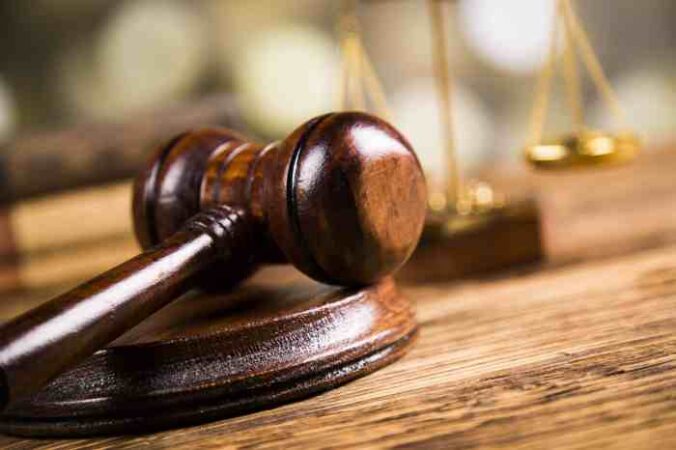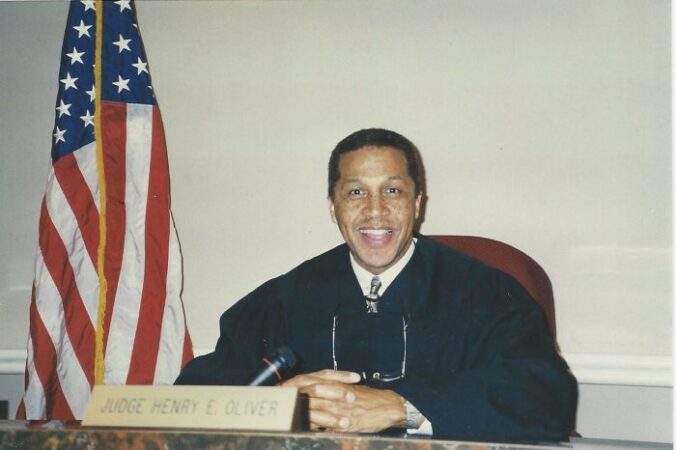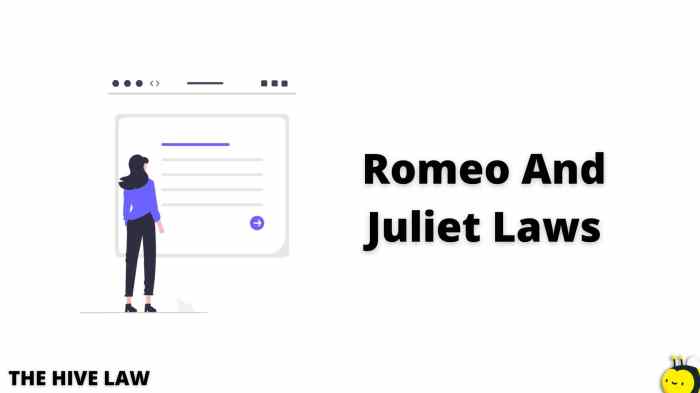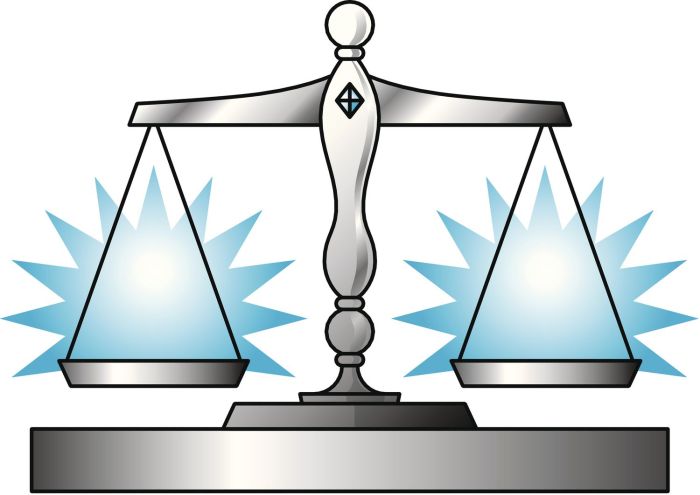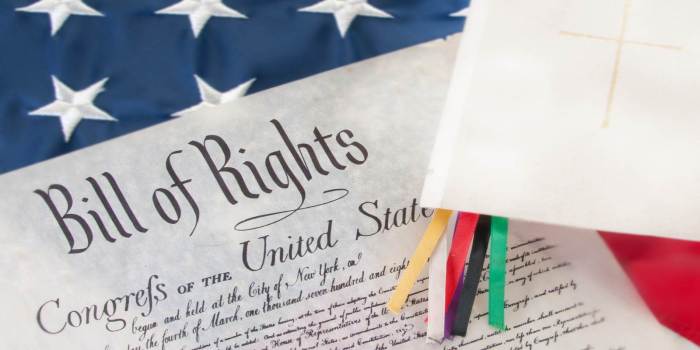
What does due process of law mean? This fundamental principle of American jurisprudence guarantees fairness and impartiality in legal proceedings, ensuring that individuals are treated justly and have the opportunity to be heard. Rooted in the Magna Carta and the English common law tradition, due process has evolved over centuries, shaping the legal landscape of the United States.
From the Fifth and Fourteenth Amendments to the Constitution, due process safeguards individuals against arbitrary government actions, ensuring that they are not deprived of life, liberty, or property without a fair and just process. It encompasses both procedural and substantive elements, ensuring that individuals are provided with notice and an opportunity to be heard before the government can take action against them.
The Origins of Due Process
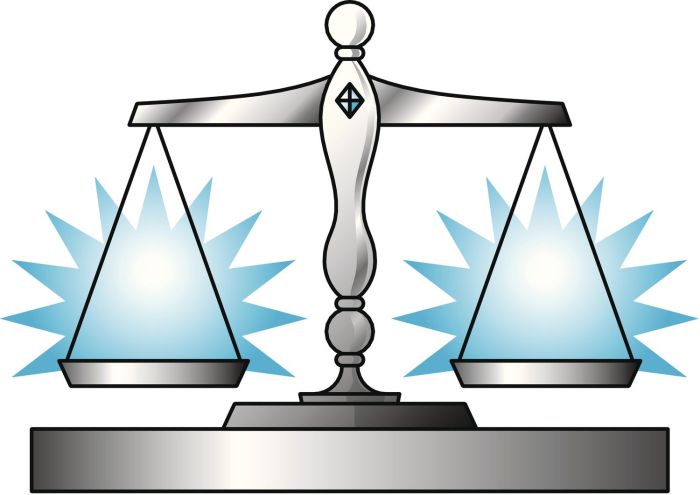
The concept of due process of law, a cornerstone of legal systems around the world, has a rich and complex history. Its evolution reflects a gradual shift from arbitrary rule to the establishment of fundamental rights and protections for individuals. Examining the origins of due process in both English common law and American constitutional law sheds light on its enduring significance.
Due Process in English Common Law
The roots of due process can be traced back to the Magna Carta (1215), a document that limited the arbitrary power of the English monarch. While not explicitly mentioning due process, the Magna Carta enshrined principles that laid the groundwork for later developments. For example, it stated that “No freeman shall be taken or imprisoned or disseised or outlawed or exiled or in any way destroyed, nor will we go upon him nor send upon him except by the lawful judgment of his peers or by the law of the land.” This provision, known as the “law of the land” clause, is widely considered a precursor to the concept of due process.
Due Process in American Constitutional Law
The Fifth and Fourteenth Amendments to the U.S. Constitution explicitly guarantee due process of law. The Fifth Amendment applies to the federal government, stating that “No person shall… be deprived of life, liberty, or property, without due process of law.” The Fourteenth Amendment extends this protection to state governments, prohibiting them from denying “any person within their jurisdiction the equal protection of the laws.”
Landmark Legal Cases
Several landmark legal cases have played a crucial role in shaping the understanding of due process in the United States.
- Marbury v. Madison (1803): While not directly addressing due process, this case established the principle of judicial review, empowering the Supreme Court to invalidate laws that violate the Constitution. This power has been instrumental in protecting due process rights.
- Dred Scott v. Sandford (1857): This case, which denied citizenship to African Americans, highlighted the limitations of due process in the context of slavery. The decision ultimately contributed to the Civil War and the passage of the Fourteenth Amendment, which aimed to rectify the injustices exposed by Dred Scott.
- Lochner v. New York (1905): This case involved a challenge to a New York law regulating the working hours of bakers. The Supreme Court struck down the law, ruling that it violated the right to contract, which was seen as a component of due process. This decision was later overturned, but it illustrates the ongoing debate surrounding the scope of due process and its application to economic regulations.
- Brown v. Board of Education (1954): This landmark decision declared state-sponsored segregation in public schools unconstitutional. While not directly addressing due process, the case demonstrated the importance of equal protection under the law, which is closely intertwined with the concept of due process.
- Miranda v. Arizona (1966): This case established the requirement for law enforcement officers to inform suspects of their constitutional rights, including the right to remain silent and the right to an attorney. This ruling significantly enhanced due process protections for criminal defendants.
The Fifth and Fourteenth Amendments
The Fifth and Fourteenth Amendments to the United States Constitution are crucial to the protection of individual rights and liberties. Both amendments contain Due Process Clauses, which guarantee that the government cannot deprive individuals of life, liberty, or property without following fair procedures.
The Fifth Amendment
The Fifth Amendment applies specifically to the federal government. Its Due Process Clause states: “No person shall… be deprived of life, liberty, or property, without due process of law.” This clause essentially ensures that the government cannot act arbitrarily or unfairly when taking action against individuals.
The Fourteenth Amendment
The Fourteenth Amendment extends the protections of the Due Process Clause to the states. This means that state governments, like the federal government, must follow due process when taking actions that could deprive individuals of their rights. The Fourteenth Amendment’s Due Process Clause states: “No State shall make or enforce any law which shall abridge the privileges or immunities of citizens of the United States; nor shall any State deprive any person of life, liberty, or property, without due process of law; nor deny to any person within its jurisdiction the equal protection of the laws.”
Comparing and Contrasting Due Process under the Fifth and Fourteenth Amendments
The Fifth and Fourteenth Amendments are similar in that they both guarantee due process of law. However, they differ in their application. The Fifth Amendment applies to the federal government, while the Fourteenth Amendment applies to the states. This means that the Fifth Amendment protects individuals from federal government actions, while the Fourteenth Amendment protects individuals from state government actions.
- Fifth Amendment: The Fifth Amendment’s Due Process Clause is primarily concerned with procedural fairness in federal court proceedings. It guarantees rights such as the right to a fair trial, the right to legal representation, and the right to confront witnesses.
- Fourteenth Amendment: The Fourteenth Amendment’s Due Process Clause is broader in scope, covering a wider range of government actions. It protects individuals from state laws and regulations that violate fundamental rights. This includes rights related to personal liberty, property ownership, and access to education.
Due Process in Specific Contexts: What Does Due Process Of Law Mean
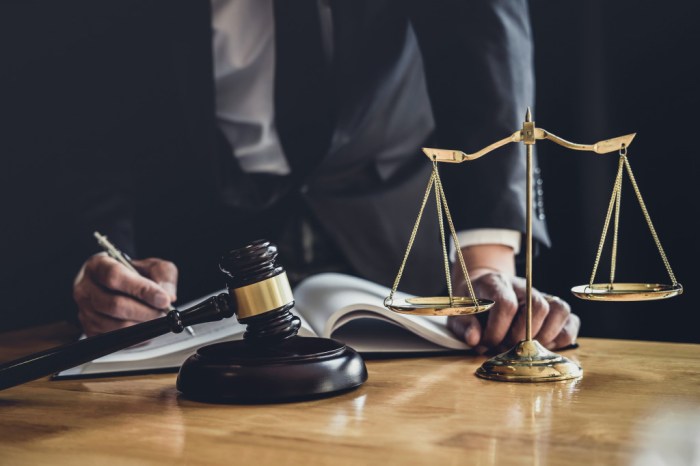
Due process of law is not a static concept; it adapts to different legal contexts, ensuring fairness and protection of individual rights across various areas of the law. Understanding how due process manifests in different contexts is crucial for appreciating its significance and practical application.
Due Process in Criminal Justice
Due process is paramount in criminal justice, guaranteeing fair treatment and protecting individuals from arbitrary government action. The Fifth and Fourteenth Amendments, along with case law, define specific procedural safeguards that must be followed throughout the criminal process.
- Right to Notice and Hearing: Accused individuals have the right to be informed of the charges against them and have a fair opportunity to present their defense in court.
- Right to Counsel: Individuals facing criminal charges have the right to legal representation, ensuring a level playing field in the legal system.
- Protection Against Self-Incrimination: The Fifth Amendment’s privilege against self-incrimination protects individuals from being compelled to testify against themselves in criminal proceedings.
- Right to a Fair Trial: Due process ensures a fair trial by an impartial jury, the right to confront witnesses, and the right to present evidence.
- Protection Against Double Jeopardy: Individuals cannot be tried twice for the same crime, safeguarding against multiple prosecutions for the same offense.
Ensuring due process in criminal justice is crucial for upholding the presumption of innocence and protecting individuals from wrongful convictions.
Due Process in Civil Litigation
Due process principles also apply to civil litigation, ensuring fairness and procedural regularity in resolving disputes between individuals or entities.
- Notice and Opportunity to Be Heard: Parties involved in civil litigation must be properly notified of the proceedings and have the opportunity to present their arguments and evidence.
- Right to Discovery: Parties have the right to obtain relevant information from each other, enabling them to prepare their cases effectively.
- Impartial Decision-Making: Due process requires that decisions in civil cases be made by impartial judges or juries, free from bias or undue influence.
- Right to Appeal: Parties have the right to appeal adverse decisions to higher courts, ensuring that legal errors can be corrected.
Due process in civil litigation safeguards the rights of all parties involved, ensuring a fair and just resolution of disputes.
Due Process in Administrative Law
Administrative law governs the activities of government agencies and their impact on individuals. Due process in this context ensures that individuals are treated fairly by government agencies.
- Notice and Opportunity to Comment: Individuals must be given notice of proposed agency actions that may affect them and have the opportunity to provide input before final decisions are made.
- Right to a Hearing: In certain circumstances, individuals may be entitled to a formal hearing before an agency, where they can present evidence and argue their case.
- Impartial Decision-Making: Decisions made by administrative agencies must be based on evidence and free from bias or conflicts of interest.
- Right to Judicial Review: Individuals can challenge agency decisions in court, ensuring that agency actions are subject to judicial oversight.
Due process in administrative law safeguards individual rights from overreaching government action and ensures that agencies operate fairly and transparently.
Due Process in Education
Due process principles extend to the educational setting, protecting students’ rights and ensuring fair treatment in school disciplinary proceedings.
- Notice of Charges: Students must be informed of the specific charges against them in disciplinary proceedings.
- Opportunity to Be Heard: Students must be given a fair opportunity to present their side of the story and challenge the evidence against them.
- Right to Counsel: In some cases, students may have the right to legal representation in disciplinary hearings.
- Impartial Decision-Making: Disciplinary decisions must be made by impartial school officials, free from bias or conflicts of interest.
Due process in education ensures that students are treated fairly and that disciplinary actions are justified and proportionate to the offense.
“Due process is not a technicality; it is the very essence of a government of laws, not of men.” – Justice Felix Frankfurter
Due Process and Modern Challenges
The concept of due process of law, while deeply rooted in history, is not static. It must constantly adapt to the evolving landscape of society, particularly in the face of technological advancements and emerging legal issues. Modern challenges necessitate a re-examination of due process principles to ensure they remain effective in safeguarding individual rights in the 21st century.
Technology’s Impact on Due Process
The rapid proliferation of technology has profoundly impacted due process considerations, raising new questions about privacy, surveillance, and the administration of justice. The ability to collect, store, and analyze vast amounts of data has created both opportunities and risks for individuals’ rights.
- Data Privacy and Surveillance: The rise of data-driven technologies, such as facial recognition software and social media platforms, has led to concerns about the potential for excessive government surveillance and the erosion of individual privacy. The Fourth Amendment’s protection against unreasonable searches and seizures must be interpreted in light of these new realities. For example, the use of facial recognition technology in public spaces raises questions about whether individuals have a reasonable expectation of privacy in their public movements.
- Digital Evidence and Due Process in Criminal Justice: The increasing reliance on digital evidence in criminal investigations presents challenges for due process. The admissibility of digital evidence, including data from smartphones, social media accounts, and cloud storage, requires careful consideration of its reliability, authenticity, and potential for manipulation. Courts must balance the need to ensure fair trials with the use of cutting-edge technology. The potential for digital evidence to be altered or fabricated raises serious due process concerns.
- Online Speech and Due Process: The internet has become a powerful platform for free speech and expression. However, this has also led to challenges in regulating online content, particularly when it comes to hate speech, harassment, and misinformation. Balancing the right to free speech with the need to protect individuals from harm requires careful consideration of due process principles. The potential for online platforms to censor content or remove accounts without adequate due process safeguards raises serious concerns about the right to free speech.
Evolving Interpretations of Due Process, What does due process of law mean
The meaning of due process is not fixed but evolves over time, adapting to changing social norms and legal contexts. The courts have increasingly recognized the need to ensure that due process protections are applied to emerging legal issues, including:
- The Right to Counsel in the Digital Age: The increasing complexity of digital evidence and the potential for individuals to be self-represented in legal proceedings raise questions about the adequacy of legal representation in the digital age. Courts are grappling with the need to ensure that individuals have access to qualified legal counsel who can effectively navigate the complexities of digital evidence and online proceedings.
- Due Process in Administrative Proceedings: The growth of administrative agencies has led to a significant increase in the number of administrative proceedings that affect individuals’ rights. Ensuring due process in these proceedings is critical, as they often involve complex rules and procedures. Courts are increasingly scrutinizing the procedural safeguards provided by administrative agencies to ensure that they meet due process standards.
- Due Process in the Context of Artificial Intelligence: The use of artificial intelligence (AI) in legal decision-making, such as risk assessment tools and predictive policing, raises concerns about the potential for bias and the need for human oversight. The use of AI in legal proceedings must be carefully regulated to ensure that it does not violate due process principles.
Future Directions of Due Process
The future of due process is likely to be shaped by ongoing technological advancements, evolving social norms, and emerging legal challenges. Several key areas will likely require ongoing attention:
- The Impact of Emerging Technologies: As new technologies continue to emerge, the legal system will need to adapt to ensure that due process protections remain relevant and effective. This will require ongoing dialogue between legal scholars, policymakers, and technologists to develop best practices for the use of new technologies in a way that respects individual rights.
- Balancing Due Process with National Security: The need to balance due process protections with national security concerns will continue to be a complex issue. The courts will need to carefully scrutinize government surveillance programs and other measures taken in the name of national security to ensure that they do not violate individual rights.
- Ensuring Equal Access to Justice: The increasing complexity of the legal system and the rising costs of legal representation make it more challenging for individuals to access justice. Ensuring that all individuals have equal access to due process will require ongoing efforts to reform the legal system and make it more accessible to all.
Concluding Remarks
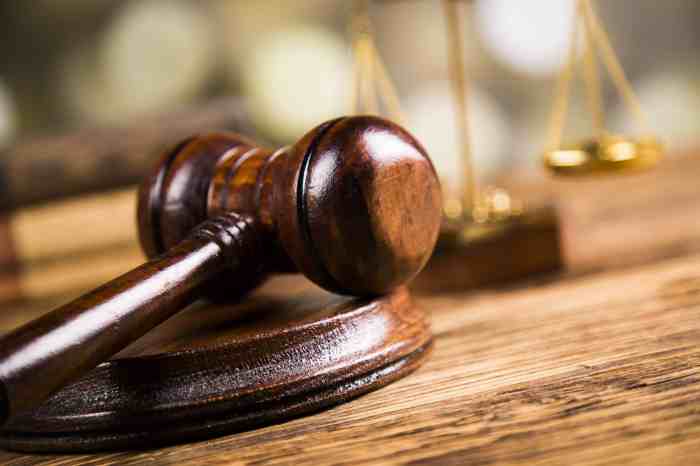
The concept of due process of law is a cornerstone of American justice, guaranteeing fairness and protecting individual rights. It has been instrumental in shaping our legal system, ensuring that individuals are treated justly and that the government acts within the bounds of the law. As society evolves and technology advances, the interpretation and application of due process will continue to adapt, ensuring that it remains a vital safeguard for the rights and freedoms of all Americans.
Frequently Asked Questions
What is the difference between procedural and substantive due process?
Procedural due process focuses on the fairness of the legal process, ensuring that individuals have an opportunity to be heard and present their case. Substantive due process, on the other hand, protects fundamental rights from government interference, ensuring that the government does not infringe upon those rights even if it follows proper procedures.
How does due process apply in criminal cases?
In criminal cases, due process guarantees that defendants have the right to a fair trial, including the right to an attorney, the right to confront witnesses, and the right to a jury trial.
What are some examples of violations of due process?
Examples of due process violations include denying someone the right to an attorney, conducting a search without a warrant, or imposing a punishment that is disproportionate to the crime committed.
How does due process relate to the concept of equal protection under the law?
Due process and equal protection are intertwined concepts. Due process ensures that individuals are treated fairly in legal proceedings, while equal protection guarantees that individuals are treated equally under the law, regardless of their race, religion, gender, or other protected characteristics.
